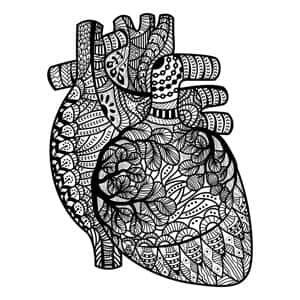
Q. Dear Joe & Terry Graedon,
Thank you for all the information you make available to the public about alternatives to many pharmaceuticals. You are providing a needed service to the public.
I looked on your website for alternatives to statins to lower high cholesterol. I found a suggestion about using vinegar, but none of the respondents had reported whether it worked.
My cholesterol was 187 and my doctor has said if I don’t lower it in three months on my own, he wants to put me on statins. I would prefer not to take such drugs.
Do you know of any other options that might work? I would like to lower my cholesterol naturally before my next appointment.
Again, thank you for your public service.
Pearl
A. Dear Pearl,
Thank you for your thoughtful question. If you have not had a cardiac event, we’re not sure your doctor would be doing you any favors by prescribing a statin. In fact, if your total cholesterol is 187, we are hard put to understand why he would want to lower your cholesterol levels any further.
It comes as a great shock to people to learn that low cholesterol is associated with increased mortality in older people, especially older women. It runs contrary to everything we have been told over the last couple of decades. But here are the data:
Low Cholesterol and The Honolulu Heart Program
Researchers at the University of Hawaii followed 3,500 Japanese-American men born between 1900 and 1919. Cholesterol levels were measured in middle age and again when they were senior citizens. To the surprise of the investigators, the men with the lowest cholesterol levels had the highest risk of dying. The sweet spot (the cholesterol range that seemed associated with the best longevity outcomes) was 188-209.
The scientists were so confused by their results that they concluded:
“We have been unable to explain our results. These data cast doubt on the scientific justification for lowering cholesterol to very low concentrations (less than 4.65 millimoles per liter) [less than 180 milligrams per deciliter] in elderly people.”
This study was published in 2001. It is neither the first nor the last time low cholesterol levels have been linked to higher mortality, especially in older women.
The Hunt2 Study
We have been particularly impressed by a Norwegian study of more than 52,000 people over 10 years (the HUNT2 Study published in the Journal of Evaluation in Clinical Practice, Feb. 2012). In this data analysis, the investigators tracked 6,780 older people with attention to cholesterol levels and mortality.
One of their first conclusions:
“we found total cholesterol to be an overestimated risk factor.”
But here is the key finding: There was an inverse relationship between cholesterol and death. In other words, women with a total cholesterol under 200 had a higher death rate than women with cholesterol levels over 200. Even women with cholesterol levels over 270 seemed to fare better than women with low cholesterol. We know: this seems like total heresy!
Here are the investigators’ conclusions:
“Our study provides an updated epidemiological indication of possible errors in the CVD [cardiovascular disease] risk algorithms of many clinical guidelines. If our findings are generalizable, clinical and public health recommendations regarding the ‘dangers’ of cholesterol should be revised. This is especially true for women, for whom moderately elevated cholesterol (by current standards) may prove to be not only harmless but even beneficial.”
Pearl, your doctor may be skeptical about these data, so you may want to print the abstracts we have linked to and take them with you to your appointment.
We’d like to point out that high cholesterol (cholesterol much higher than yours) is only one risk factor for heart disease. There are at least 200. In our eGuide to Cholesterol Control and Heart Health we quote a fabulous testimonial from Laura Effel, in which she describes exactly how she lowered her LDL cholesterol 44 points in 5 weeks without drugs. Three months later, Laura had gotten her LDL cholesterol down to 70, again without medications. Here is her advice in a nutshell:
- Avoid spikes in blood sugar
- Eliminate refined carbohydrates
- Eat a high-protein breakfast
- Use olive oil instead of other fats
- Add soluble fiber to all meals
- Choose fish instead of meat or poultry
- Drink green tea
- Eat high-antioxidant foods
- Don’t eat before bed
You find all the details of Laura Effel’s regimen in our eGuide to Cholesterol Control and Heart Health. Just go back to the home page and look in the upper right hand corner for the Health eGuides tab. Under that tab you will find in alphabetical order our eGuide to Cholesterol Control.
What really counts, of course, is helping you survive into a healthy old age. So what we need are good data on a diet to help you do that. The best studies currently available point to the Mediterranean diet as an excellent way to approach this. The PrediMed study from Spain showed that high-risk individuals who ate a Mediterranean-style diet supplemented with extra-virgin olive oil or nuts were less likely to experience a heart attack, stroke or death from cardiovascular causes (New England Journal of Medicine, April 4, 2013).
Not only was the Mediterranean diet associated with a lower risk of heart attacks and strokes, further analysis of the data collected in this study showed that it benefited the brain as well, as it was linked to better cognitive function (Journal of Neurology, Neurosurgery & Psychiatry, online May 13, 2013).

